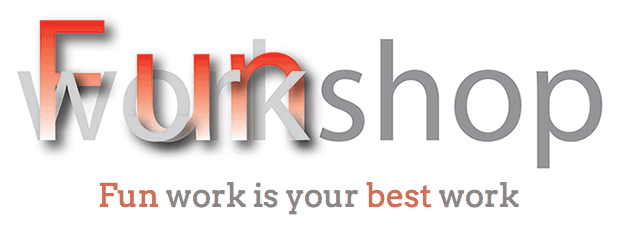Is Fun just another fad?
A draft chapter from my upcoming book, The Fun Paradox
If you've worked for a corporation, you've almost certainly experienced consultants, motivational speakers, or administrative initiatives that were designed to improve teamwork, corporate culture, quality, or productivity – well-intentioned efforts to turn your organization overnight into a lean, mean, fightin' machine. My own experience was with a corporate culture consultancy, and my organization spent 2 days of the time of all senior and mid-level managers (~1000 people, or almost 6 man-years) on improving our corporate culture. We spent a full day watching short PowerPoint presentations given by overly cheerful HR people and participating in stagey group activities. The purpose was to drive home about ten messages that could have fit on a single PowerPoint slide, messages that I would have had a hard time turning into a talk that lasted more than fifteen minutes.
The final result? I did get some anonymous feedback from my colleagues, bosses, and subordinates as part of one of the exercises, and it was useful. The rest went into the recycling bin, the only lesson learned was that if something generates this much paper based on such a thin serving of content, it's crap. A fad, destined to fade.
The nature of fads is to come on hard and quickly go, leaving behind remaindered books and memories of tedium and suppressed laughter. Why is fun any different? If I make the claim that fun is what you should pursue at work, and the metric you should use to measure progress and success (and I do so claim), and offer you methods to encourage and develop fun (I will), why should you believe that fun isn't just another navel-gazing exercise, or an instant recipe for success that tastes like, and is just as filling as, all the other things labeled "instant"?
Fun isn't a fad because fun is hard wired. If you encounter Business Process Engineering, or Six Sigma, or Matrix Management (and I'm not saying any of these are fads), you'll need an explanation – and even with one, you still may not understand. You don't need an explanation to understand fun. Almost everyone sees fun as a very desirable aspect of their lives, and knows exactly when they're having (and not having) fun, and our hypersensitive fun detector is not a human attribute by chance. There's a reason that you instinctively know what fun is – why otters clearly know too, and, from watching the squirrels screw around in my backyard, why even rodents seem to know. Because fun makes us better, more likely to survive. Fun is already a classic, older than humankind.
The 8 Characteristics of a Fad.
Miller, Hartwick, and Breton-Miller published an excellent academic article on business management fads (Bus. Horizons 47:7-16), and described eight common characteristics of a fad. Let's see how fun in business rates on these criteria:
By my analysis, fun in business rates better (1/8) than the best of the "classics" identified in Miller, et al., Management Information Systems and Supply Chain Management (2/8).
Fun as a serious part of modern life also has a considerable base in recent research. I've already mentioned Mihaly Csikszentmihalyi (it's pronounced Mee-hi-cheek Saz-me-haye) and his groundbreaking work on flow, and the books by McGonigal and Chatfield on how the gaming industry has funded research on fun in gaming. Fun in business has recently attracted attention, as you can see for yourself by a Web search for "how to have fun at work." Hemsath and Yerkes' 301 Ways to Have Fun at Work has been around since 1997, though this book and the many 15-, 21-, and 52-ways-to-have-fun screeds on the Web are at best collections of examples from companies that have something fun going on in the workplace. They're essentially lists of suggestions for fun activities that you can bring to work, rather than methods for making the work itself fun. Organizations like Google Inc. have directly demonstrated the value of a fun workplace, but most see Google as a special case where fun can be allowed when your workplace is staffed with super-intelligent overachievers whose goof-offs are valuable intellectual property. The idea that your janitors should be having fun is not on the agenda . . . yet. Research has established that fun (at least solo fun, or flow) is an important part of high performance, but research on the application of fun to business management is in its infancy. This book is the first report of our research on fun and how to encourage it at work, but before we examine why fun is good for work and how to get to it, let's parse the mathematical expression: [Fun ≠ Play ^ Play ⊂ Fun ^ Fun ≠ Funny, the title of the next chapter . . . ]
Read another draft chapter, Fun ≠ Play ^ Play ⊂ Fun ^ Fun ≠ Funny, or see even more on the Funshop Blog!
Learn more about how you can bring the power of fun to your work through Funshop . . .
I'm now posting more new chapters on the Funshop Blog, help me refine it and get credit and prizes!
Download a PDF version of The Fun Manifesto . . .
Listen to the audiobook version of The Fun Manifesto . . .
But, most importantly, please go out and have fun! and . . . why not now?
